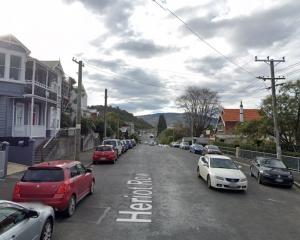More needs to be done to turn around the ''poor cousin'' view many people hold about mental health, Prof Annette Beautrais says.
Speaking to about 30 people at a meeting organised by the Life Matters Suicide Prevention Trust, Prof Beautrais said while ''huge gains'' had been made in identifying risk factors associated with suicide during the past 25 years, much work needed to be done to use that information to prevent suicide.
Mental health services were the ''poor cousin'' of the health sector and ''under-resourced massively'', Prof Beautrais said earlier this week at the meeting, held in the Dunningham Suite at the Dunedin Central Library.
A huge stigma surrounding suicide and depression also still existed and a culture change was needed.
She had come up with an idea to approach New Zealand's 100 most successful companies and ask them for a small donation to fund suicide prevention workshops for staff, Prof Beautrais said.
''I gave up after 10 companies because the response was similar,'' she said.
''The response I got was along the lines of `We don't want our company associated with suicide prevention'.''
Such attitudes were unhelpful in addressing the suicide rate.
''We need to encourage help-seeking behaviours.
''We need to destigmatise mental health treatment.''
Depression and other mental health conditions associated with suicide needed to be looked at in the same light as chronic physical conditions.
''We fully recognise physical health problems and we have very good systems set up to support people and chase them up if they don't come to appointments.
"We need better recognition that depression is a chronic health problem and people need [to be] supported.''
Greater measures also needed to be taken to prevent access to the means of committing suicide, she said.
The Canterbury District Health Board was trialling a zero-suicide programme for mental health patients and it was a goal which other DHBs and communities should aim for, she said.
''My argument is if you can do that within the mental health system, then within the local community we need a zero-suicide aim as well.''
While the goal might not be achieved, aiming for zero suicides would save lives, she said.
The Australian Government's response to suicide prevention also provided a good blueprint.
''I hope that Australia is providing such a good model that New Zealand can't resist copying it,'' Prof Beautrais said.
Programmes such as Mates in Construction had provided workers with the tools to identify when workmates were at risk of suicidal behaviour and to intervene.
More funding was also required to tackle the issue and specific initiatives for youth and Maori and Pacific people also needed to be looked at, she said.
Where to get help
Lifeline: 0800-543-354.
Depression Helpline (8am-midnight): 0800-111-757.
Healthline: 0800-611-116.
Suicide Crisis Helpline (aimed at those in distress, or those who are concerned about the wellbeing of someone else): 0508-828-865.
Youthline: 0800-376-633, free text 234 or email talk@youthline.co.nz











